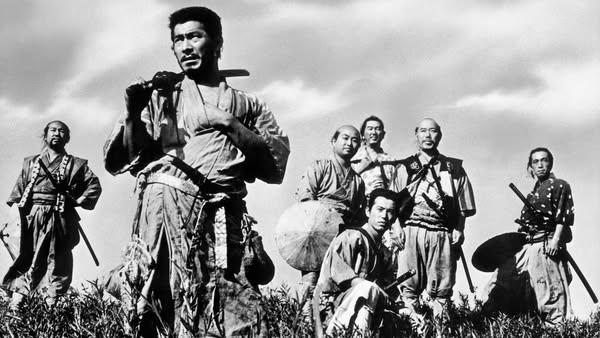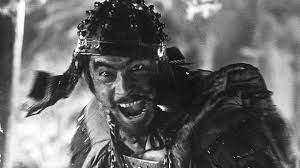Seven Samurai (1954)

“Seven Samurai,” directed by Akira Kurosawa and released in 1954, is a landmark film that has profoundly influenced the action and adventure genres. Set in 16th-century Japan, the story follows a small village that faces constant threats from bandits. In a desperate bid for survival, the villagers seek the help of seven samurai warriors, each with unique skills and backgrounds.
The film opens with the villagers, led by a wise elder, realizing that their crops are at risk from an impending bandit raid. They decide to recruit samurai to defend their home, leading to a compelling exploration of class, honor, and sacrifice. The introduction of the seven samurai—each with distinct personalities and fighting styles—adds depth to the narrative.

Among them is Kambei Shimada, a seasoned leader played by Takashi Shimura, who embodies wisdom and strategy. He is joined by characters like the brash and impulsive Kikuchiyo, portrayed by Toshiro Mifune, who adds a dynamic element to the group. The film masterfully develops these characters, allowing viewers to connect with their struggles and motivations.
Kurosawa’s direction is notable for its innovative cinematography and editing techniques, particularly during battle scenes. The climactic confrontations between the samurai and bandits are visually striking and emotionally charged, showcasing the director’s ability to blend action with character-driven storytelling.

“Seven Samurai” also delves into themes of loyalty and the moral complexities of warfare. The film raises questions about heroism and sacrifice, illustrating the samurai’s commitment to protecting the villagers, even at great personal cost. This exploration of duty and honor resonates deeply, making it a poignant commentary on the human condition.
The film’s influence extends beyond its immediate impact, inspiring countless remakes and adaptations, including the classic Western “The Magnificent Seven.” Its legacy endures as a masterpiece of world cinema, celebrated for its storytelling, character development, and visual artistry.

In conclusion, “Seven Samurai” is a timeless epic that transcends its genre. With its rich narrative, memorable characters, and profound themes, it remains a seminal work that continues to inspire filmmakers and audiences alike, epitomizing the artistry of cinema.











